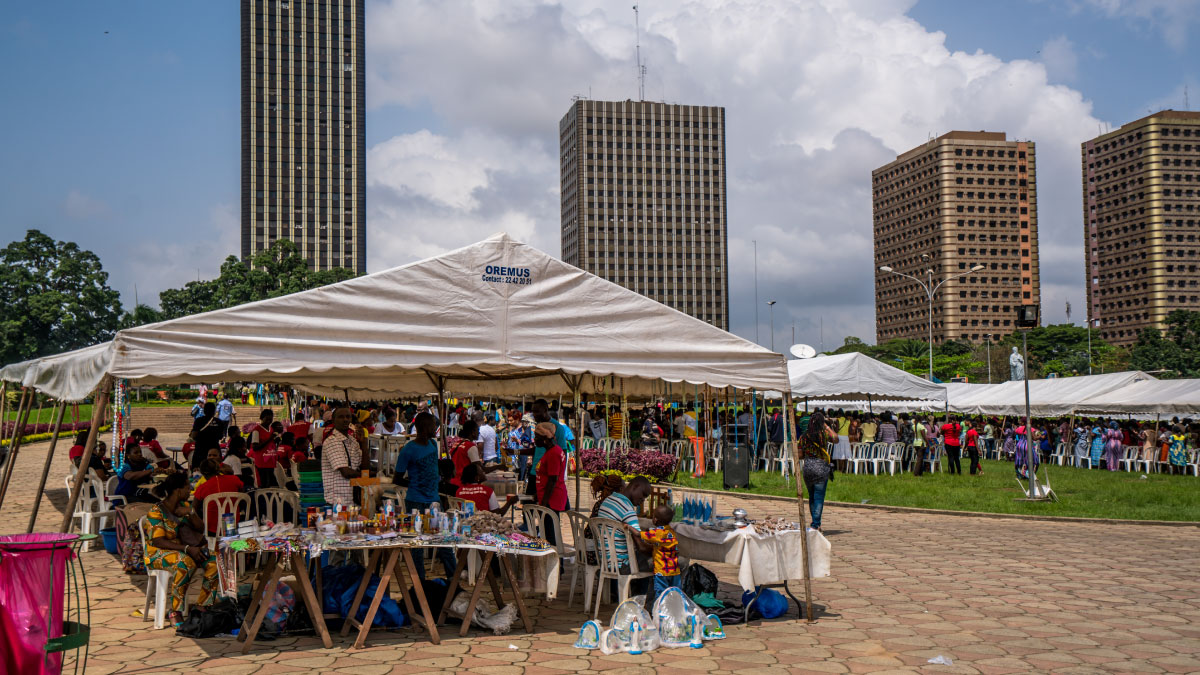A new report calls for comprehensive reforms to boost investment and sustainable development in the eight-nation bloc.

© Shutterstock / NoyanYalcin | Vendors sell items in Abidjan, the capital of Côte d'Ivoire, one of the leading recipients of foreign direct investment in West Africa.
The West African Economic and Monetary Union (WAEMU) has made a significant stride towards fostering sustainable development with the release of its Investment Policy Review, published by UNCTAD.
The report, published on 1 February, offers a deep dive into the investment landscape of the WAEMU region (also known by its French acronym, UEMOA), shedding light on crucial trends, challenges and recommendations to enhance the investment climate.
Despite a succession of crises, WAEMU countries – Benin, Burkina Faso, Côte d’Ivoire, Guinea-Bissau, Mali, Niger, Senegal and Togo – have maintained economic growth and attracted investment.
Together, the eight economies represent a market of 137 million people and a GDP worth $175 billion, or about 9% of the sub-Saharan African market.
The report, currently available only in French, reveals a significant surge in foreign direct investment (FDI) flows, with figures more than tripling since 2007 and nearly doubling since 2013, amounting to an impressive $5.5 billion in 2022.
FDI concentrated in a few sectors and countries
But FDI within WAEMU is mainly directed towards the extractive industry and shows disparities, with four countries — Côte d’Ivoire, Mali, Niger and Senegal — accounting for 85% of the total FDI stock in 2022.
And despite encouraging signs, the FDI stock in WAEMU economies lags behind comparable regions in Africa, suggesting untapped potential for further investment. This calls for stronger efforts to attract more investment to foster sustainable development across the region.
More actions needed to bolster investment
Higher levels of investment are required to boost private sector development across the region and overcome development challenges, including in education, infrastructure and food security sectors.
The report lauds ambitious reforms initiated at regional and national levels to facilitate investment, both local and foreign, and calls for additional measures to enhance transparency and further streamline administrative procedures.
It also advocates for consolidated and simpler laws and institutional approaches across domains such as investment-specific regulations, business creation, taxation, labour and competition. The recommendations are based on UNCTAD’s Investment Policy Framework for Sustainable Development.
Regional investment promotion approach
The report outlines a regional investment promotion approach focused on the priority sectors of the WAEMU countries and aligned with the UN Sustainable Development Goals, as well as regional and national strategies.
Such an approach not only raises awareness about the region’s investment potential but also fosters collaboration, information sharing, capacity-building and the adoption of best practices among countries.
53 investment policy reviews so far
UNCTAD prepared the report at the request of the WAEMU Commission, involving the member states of the union. It has published 53 such reports since 1999, which have benefited 60 economies worldwide.
The reports provide objective assessments of a country’s or region’s legal, regulatory and institutional framework, along with action-oriented and tailored recommendations to bolster investment and maximize its benefits.


